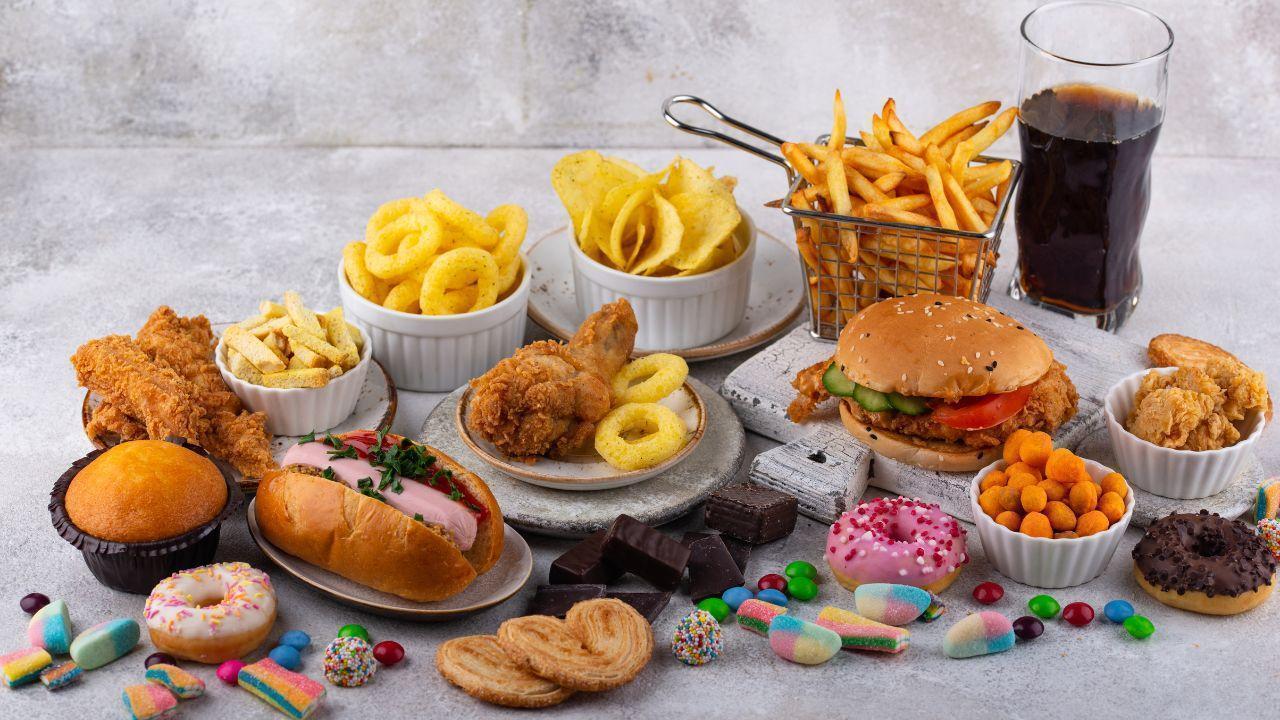
Post by: Vansh Kumar
When you think about mental health, nutrition might not be the first thing that comes to mind. However, recent research highlights a strong link between what we eat and how we feel mentally. This fascinating relationship between the gut and the brain is often referred to as the gut-brain connection. Understanding this connection can open doors to managing anxiety, depression, and overall mental well-being by simply adjusting what we put on our plates.
The gut-brain connection refers to the complex communication system between your digestive system (gut) and your brain. This interaction is facilitated by the gut-brain axis, a network of neurons, hormones, and neurotransmitters that send signals back and forth. It's not just a one-way street—your brain affects your gut, and your gut influences your brain. This relationship has a significant impact on mental health, and scientists now refer to the gut as the "second brain." That’s because the gut contains about 100 million neurons, more than the spinal cord! So, it's no surprise that what happens in your gut can affect your mood, emotions, and mental clarity.
The food we eat has a direct impact on the gut-brain connection, influencing brain function, mood, and mental well-being. Certain nutrients and dietary patterns can either support or impair this connection. Let's explore how nutrition influences mental health and why a healthy gut is key to a healthy mind.
One of the most important players in the gut-brain connection is the gut microbiome. This is the collection of trillions of bacteria and microorganisms living in your digestive tract. These microbes produce neurotransmitters such as serotonin, dopamine, and gamma-aminobutyric acid (GABA)—chemicals that regulate mood and cognitive function. Approximately 90% of serotonin, the "feel-good" hormone, is produced in the gut. When your gut microbiome is healthy and diverse, it positively impacts your mood, stress levels, and even how well you think. On the flip side, an unhealthy gut with imbalances in gut bacteria (a condition known as dysbiosis) has been linked to anxiety, depression, and even memory issues. Nutrition plays a crucial role in maintaining a balanced gut microbiome. Diets high in processed foods, sugar, and unhealthy fats can harm your gut bacteria, while diets rich in fiber, fermented foods, and prebiotics can support a healthy gut environment.

Chronic inflammation has been linked to various mental health disorders, including depression and anxiety. Unhealthy diets rich in trans fats, refined sugars, and processed foods can promote inflammation in the body. Inflammation in the gut can travel to the brain, contributing to mental health problems. Conversely, anti-inflammatory foods like leafy greens, fatty fish, nuts, and seeds are rich in omega-3 fatty acids and antioxidants that can reduce inflammation. This shows that nutrition influences mental health by either fueling or fighting inflammation in your body, which can either worsen or alleviate mental health symptoms.
The connection between certain nutrients and mental health is undeniable. Deficiencies in key vitamins and minerals can lead to a range of mental health issues. B vitamins, for example, play an essential role in regulating brain function and mood. Deficiencies in vitamins B6, B12, and folate have been associated with higher rates of depression and anxiety. Similarly, low levels of omega-3 fatty acids, commonly found in fish like salmon, have been linked to mood disorders. Omega-3s are crucial for brain function and reducing inflammation, both of which are vital for mental health. Magnesium is another important nutrient that plays a key role in brain chemistry and mood regulation, and low levels of magnesium are often associated with anxiety and depression. Zinc, an often-overlooked mineral, is also essential for mental health. Zinc deficiency can impair the immune system and worsen symptoms of depression. Ensuring a diet rich in these essential nutrients can help bolster both gut health and mental well-being.
Probiotics are live beneficial bacteria, and prebiotics are non-digestible fibers that feed these bacteria. Both are critical for maintaining a healthy gut microbiome, which in turn supports the gut-brain connection. Including foods rich in probiotics like yogurt, kefir, and fermented vegetables can help repopulate your gut with beneficial bacteria. Prebiotics, found in foods like bananas, onions, and garlic, fuel this good bacteria, ensuring they thrive. Studies have shown that increasing probiotic intake can improve symptoms of anxiety, depression, and even stress. These mental health improvements are believed to be due to probiotics' ability to regulate inflammation and enhance neurotransmitter production in the gut.
To support both your gut health and mental health, consider incorporating nutrient-dense foods that encourage a healthy gut microbiome. Fiber-rich foods such as whole grains, fruits, vegetables, and legumes nourish your gut bacteria and support digestion. Fermented foods like yogurt, kefir, sauerkraut, kimchi, and kombucha introduce beneficial probiotics to your gut. Omega-3 fatty acids, found in fatty fish like salmon, flaxseeds, and walnuts, are essential for brain health and reducing inflammation. Foods rich in antioxidants like berries, dark chocolate, and green leafy vegetables help reduce inflammation in both the gut and brain. Prebiotic foods, including garlic, onions, leeks, and bananas, provide the necessary nourishment to feed the beneficial bacteria in your gut. By prioritizing these foods, you can create a balanced diet that not only nurtures your body but also improves your mental health.
The article explains the important relationship between the gut and the brain, known as the gut-brain connection. This gut-brain connection shows how the food we eat can affect our mood, thinking, and overall mental health. By eating the right foods, like those rich in probiotics, fiber, and omega-3 fatty acids, we can improve our mental health. Bad eating habits, such as consuming processed foods and sugar, can damage the gut and lead to mental health issues like anxiety and depression. The article encourages people to focus on eating healthy foods to support their gut-brain connection and improve their mental health.
The information provided in this article about the gut-brain connection and mental health is for educational purposes only. It is not intended as medical advice. Please consult a healthcare professional before making any changes to your diet to address your mental health. The gut-brain connection is a complex topic, and while proper nutrition can play a role in supporting your mental health, it is important to seek guidance from a qualified doctor for personalized advice.
Gut-brain connection, mental health, nutrition and mental health, gut microbiome, probiotics, prebiotics, omega-3 fatty acids, serotonin, inflammation and mental health, healthy gut, mood and diet, brain function, diet and mood disorders, healthy eating for mental health, gut health.
#trending #latest #GutBrainConnection #MentalHealth #GutHealth #NutritionAndMentalHealth #GutMicrobiome #Probiotics #Prebiotics #Omega3 #HealthyGut #BrainFunction #DietAndMood #HealthyEating #InflammationAndMentalHealth #Serotonin #Wellness #breakingnews #worldnews #headlines #topstories #globalUpdate #dxbnewsnetwork #dxbnews #dxbdnn #dxbnewsnetworkdnn #bestnewschanneldubai #bestnewschannelUAE #bestnewschannelabudhabi #bestnewschannelajman #bestnewschannelofdubai #popularnewschanneldubai

Salman Khan & Rashmika Mandanna discuss their film Sikandar, addressing work ethic rumours and sharing insights on their on-set experiences...Read More.

How VR is Redefining Work, Play, and Wellness...Read More.














Partial Solar Eclipse to Be Visible Across Northern Hemisphere
A partial solar eclipse will be visible on Saturday from Canada to Siberia, with the best views in n

Milos Uzan’s Clutch Layup Sends Houston to Elite Eight
Milos Uzan’s last-second layup lifts Houston over Purdue 62-60, securing a spot in the Elite Eight a

Abu Dhabi Introduces CASGEVY: First Gene-Editing Therapy
DoH Abu Dhabi launches CASGEVY, the UAE’s first CRISPR gene therapy, revolutionizing treatment for s

Chelsea Eliminate Man City to Reach Women’s Champions League Semis
Chelsea beat Man City 3-0, overturning a two-goal deficit to reach the Women’s Champions League semi

UAE Unveils New Dirham Symbol for Physical & Digital Currency
UAE Unveils New Dirham Symbol for Physical & Digital Currency